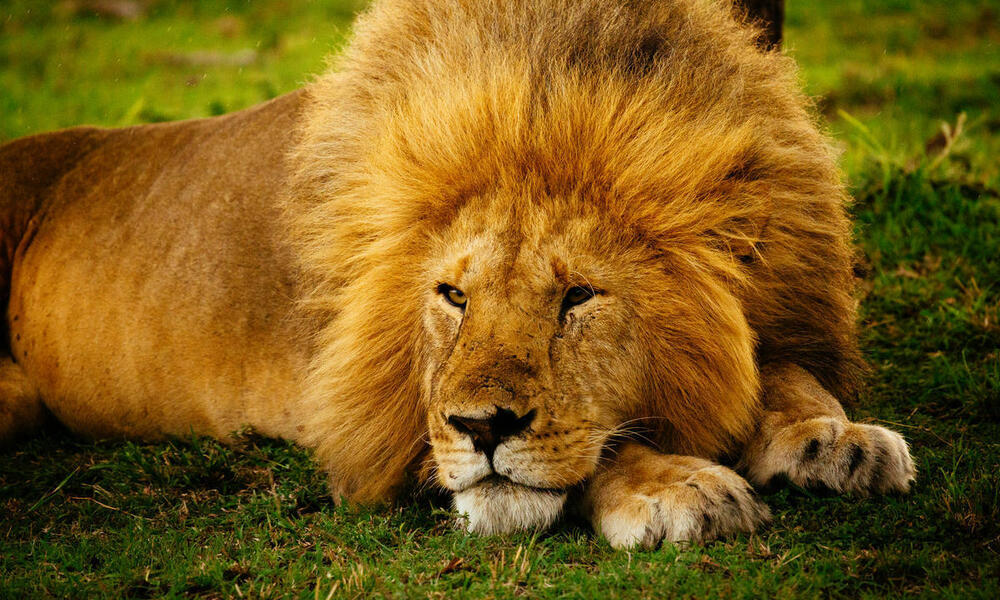3) Female lions do most of the hunting
Lions prefer to hunt in the dark. Female lions do most of the hunting and work in teams, preying on zebras, wildebeests, antelope, and other large herbivores.
Lions play a pivotal role in sustaining healthy ecosystems because they ensure that prey populations stay a balanced size. Without top carnivores like lions, herbivore populations would increase unchecked. This would lead to overgrazing, and in turn degrade habitats. Protecting lions protects the broader landscape, which also benefits people who rely on local natural resources.
4) Lions sleep up to 20 hours a day
It’s a tiring life out there! Lions sleep for the vast majority of the day.
They usually hunt at night or early in the morning. That’s because it is easier to sneak up on prey in the dark. Lions’ eyes easily adapt to lower light, so prowling in the shadows is not an issue!
5) Lions used to roam throughout Africa, Asia, and Europe
Did you know that lions used to live in all parts of Africa as well as significant portions of Europe and Asia? Sadly, they’re now found only in fragments of sub-Saharan Africa, along with a critically endangered subpopulation in West Africa and a very small population of Asiatic lions in India’s Gir National Park. That’s a mere 8% of their vast former range.
Lions’ ranges have shrunk dramatically due to human land use and climate change. By working with local communities to reduce human-wildlife conflict and conserve lion habitats, we can reduce the threats facing lions and help them thrive.
Read more about lions.
